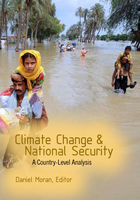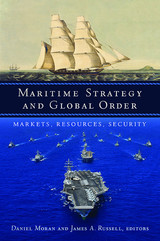
Journalist and urban analyst James S. Russell argues that we'll more quickly slow global warming-and blunt its effects-by retrofitting cities, suburbs, and towns. The Agile City shows that change undertaken at the building and community level can reach carbon-reduction goals rapidly.
Adapting buildings (39 percent of greenhouse-gas emission) and communities (slashing the 33 percent of transportation related emissions) offers numerous other benefits that tax gimmicks and massive alternative-energy investments can't match.
Rapidly improving building techniques can readily cut carbon emissions by half, and some can get to zero. These cuts can be affordably achieved in the windshield-shattering heat of the desert and the bone-chilling cold of the north. Intelligently designing our towns could reduce marathon commutes and child chauffeuring to a few miles or eliminate it entirely. Agility, Russell argues, also means learning to adapt to the effects of climate change, which means redesigning the obsolete ways real estate is financed; housing subsidies are distributed; transportation is provided; and water is obtained, distributed and disposed of. These engines of growth have become increasingly more dysfunctional both economically and environmentally.
The Agile City highlights tactics that create multiplier effects, which means that ecologically driven change can shore-up economic opportunity, can make more productive workplaces, and can help revive neglected communities. Being able to look at multiple effects and multiple benefits of political choices and private investments is essential to assuring wealth and well-being in the future. Green, Russell writes, grows the future.

Written by specialists in several disciplines, this volume explores the parameters and significance of magic in Byzantine society, from the fourth century to after the empire's fall. The authors address a wide variety of questions, some of which are common to all historical research into magic, and some of which are peculiar to the Byzantine context.
The authors reveal the scope, the forms, and the functioning of magic in Byzantine society, throwing light on a hitherto relatively little-known aspect of Byzantine culture, and, at the same time, expanding upon the contemporary debates concerning magic and its roles in pre-modern societies.

In this unique and innovative contribution to environmental security, an international team of scholars explore and estimate the intermediate-term security risks that climate change may pose for the United States, its allies and partners, and for regional and global order through the year 2030. In profiles of forty-two key countries and regions, each contributor considers the problems that climate change will pose for existing institutions and practices. By focusing on the conduct of individual states or groups of nations, the results add new precision to our understanding of the way environmental stress may be translated into political, social, economic, and military challenges in the future.
Countries and regions covered in the book include China, Vietnam, The Philippines, Indonesia, India, Pakistan, Bangladesh, Central Asia, the European Union, the Persian Gulf, Egypt, Turkey, the Maghreb, West Africa, Southern Africa, the Northern Andes, and Brazil.

Taken for granted as the natural order of things, peace at sea is in fact an immense and recent achievement—but also an enormous strategic challenge if it is to be maintained in the future. In Maritime Strategy and Global Order, an international roster of top scholars offers historical perspectives and contemporary analysis to explore the role of naval power and maritime trade in creating the international system.
The book begins in the early days of the industrial revolution with the foundational role of maritime strategy in building the British Empire. It continues into the era of naval disorder surrounding the two world wars, through the passing of the Pax Britannica and the rise of the Pax Americana, and then examines present-day regional security in hot spots like the South China Sea and Arctic Ocean. Additional chapters engage with important related topics such as maritime law, resource competition, warship evolution since the end of the Cold War, and naval intelligence.
A first-of-its-kind collection, Maritime Strategy and Global Order offers scholars, practitioners, students, and others with an interest in maritime history and strategic issues an absorbing long view of the role of the sea in creating the world we know.

READERS
Browse our collection.
PUBLISHERS
See BiblioVault's publisher services.
STUDENT SERVICES
Files for college accessibility offices.
UChicago Accessibility Resources
home | accessibility | search | about | contact us
BiblioVault ® 2001 - 2024
The University of Chicago Press









